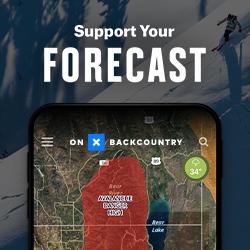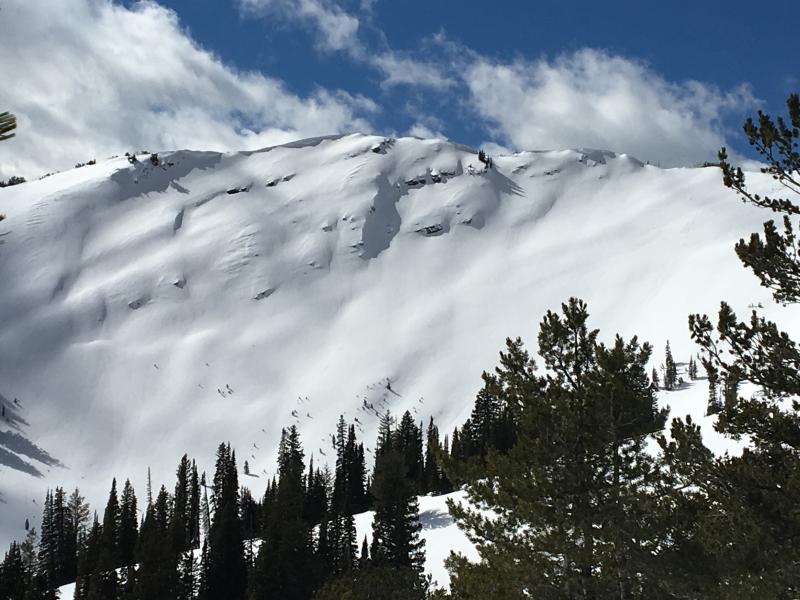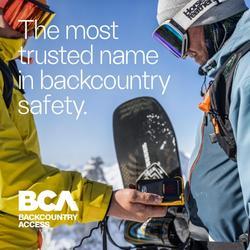Forecast for the Logan Area Mountains

Thursday morning, March 3, 2016
MODERATE (level 2): The snow is stable on most slopes and avalanches are generally unlikely. However, heightened avalanche conditions exist at upper elevations in the north portion of the zone, with human triggered wind slab avalanches and cornice-falls possible. Midday loose wet avalanches may also become possible as the snow softens on sunny slopes. Evaluate the snow and terrain carefully.
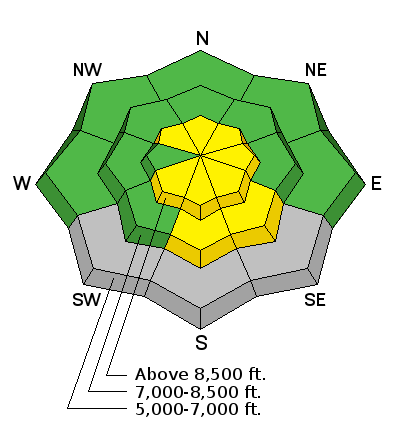
 Weather and Snow
Weather and Snow
The Tony Grove Snotel at 8400' reports 34 degrees this morning, and there's 72 inches of total snow now containing 93% of average water for the date. It's a balmy 31 degrees and still pretty windy at the 9700' CSI Logan Peak weather station, currently showing 25 mph (average) southwest winds. Sustained and gusty southwest winds have been ongoing in the mountains for a while including yesterday and overnight, and exposed slopes are obviously a bit wind-jacked. Stashes of soft recrystallized snow exist on some high sheltered north facing slopes, and the snow on sunny slopes should soften pretty early today with fairly warm overnight temperatures and developing sunny conditions.
We chose to avoid recently drifted upper elevation slopes yesterday, like this one on the east face of Wilderness Peak in the Gibson Lakes Area out of Franklin Basin in Southeast Idaho. (3-2-2016)
 Recent Avalanches
Recent Avalanches
- No new avalanches were reported locally since Friday when riders triggered several small and manageable soft wind slabs on very steep upper elevation slopes, and some natural loose wet slides occurred in sunny terrain.
-
***To view our updated list of backcountry observations and avalanche activity from around Utah, go to our observations page
Wind Drifted Snow
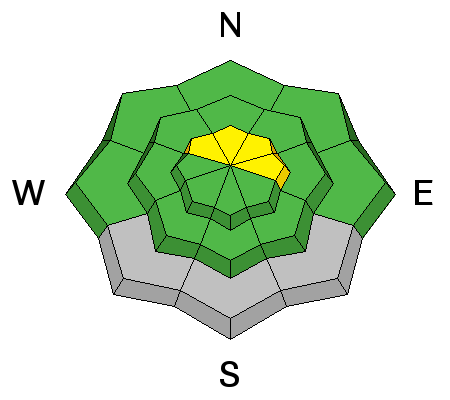
Description
Heightened wind slab avalanche and cornice fall conditions exist in some upper elevation terrain, mainly in the northern portion of the zone where more fresh snow accumulated recently.
- Beware large overhanging ridge-top cornices, which could break further back than you expect and might trigger avalanches on drifted slopes below.
- As usual, watch for and avoid recent drifts on the lee sides of ridges, cross-loaded along sub-ridges, and in and around terrain features like rock outcroppings, gullies, scoops, trees, and saddles.
- Older, hard wind slabs can be like mouse traps, sometimes allowing people to get well out on them before releasing.
- Be cautious in isolated drifted areas where the snowpack is shallow or thin and the basal snow is weak and rotten.
Wet Snow
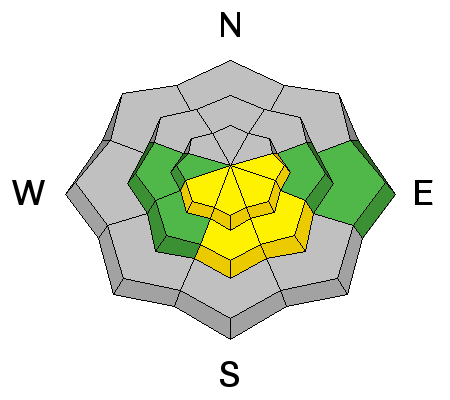
Description
Temperatures remained above freezing at most stations overnight. Loose wet avalanches may become possible on slopes where saturated snow is softened by solar warmth. In most areas, there is not enough fresh snow for this to be much of a problem, but sluffs entraining a few inches of warming moist new snow are certainly possible at upper elevations. The snow lower down has been through numerous melt-freeze cycles, the round snow grains are fairly large, and avalanches are pretty unlikely even when the snow surface is softened by the midday warmth. Exceptions might be found on steep slopes in shallow or rocky areas with very soft or weak wet snow.
Additional Information
HIGH PRESSURE ALOFT WILL REMAIN ACROSS THE GREAT BASIN THROUGH FRIDAY NIGHT. A MILD SOUTHWESTERLY FLOW WILL FOLLOW THIS WEEKEND AHEAD OF A MOIST PACIFIC STORM SYSTEM WHICH WILL IMPACT UTAH SUNDAY INTO EARLY NEXT WEEK.
General Announcements
Please submit snow and avalanche observations from your ventures in the backcountry HERE. You can call us at 801-524-5304 or email HERE, or include #utavy in your Instagram or Tweet us @UAClogan. To report avalanche activity in the Logan Area or to contact the local avalanche forecaster call me, Toby, at 435-757-7578.
We'll update this advisory throughout the season on Monday, Wednesday, Friday, and Saturday mornings by about 7:30
This advisory is produced by the U.S.D.A. Forest Service, which is solely responsible for its content. It describes only general avalanche conditions and local variations always exist.



